- Patient deaths and “significant harm” after radiology failings at Portsmouth Hospitals Trust
- “Unacceptable” practices uncovered by the CQC
- Trust chief executive “apologises unreservedly”
Two patients died and a third suffered “significant harm” after x-rays went unreported by radiologists resulting in missed opportunities to diagnose lung cancer.
The incidents were among the “unacceptable” failures at Portsmouth Hospitals Trust, which had built up a backlog of more than 26,000 unreported images of chest x-rays by March 2017.
The Care Quality Commission, which carried out an unannounced inspection following a tip-off from a member of the public, has told the trust to take urgent action and has begun reviewing radiology reporting across the NHS.
Its report into Queen Alexandra Hospital in Cosham found three incidents where patients’ lung cancers were missed.
One patient’s x-ray, taken in 2014, was examined by a junior doctor who found no abnormality. A year later, the patient was referred for an x-ray again by their GP and this time a radiologist reported suspected lung cancer, which they felt was evident from the first x-ray.
Another patient was x-rayed in late 2015 but the medical notes showed no formal review by the referrer so it is unclear if the lung cancer was spotted – or if the x-ray was reviewed. Ten months later the patient was x-rayed again and found to have advanced spread of lung cancer.
Both patients died because of the illness, the trust confirmed to HSJ.
A third patient, who is still receiving treatment for their delayed lung cancer diagnosis, is still under investigation but a provisional cause for the delay had been identified as “a delay in the review of a chest x-ray by the referring clinician or radiologist”, the CQC said.
During its inspection, the CQC was told the trust had stopped reporting “plain film chest x-rays” by radiologists for certain referral pathways in 2007.
This was due to an increasing lack of capacity in radiology.
The report said: “It was presumed chest x-rays could be interpreted by other doctors (including junior doctors) within the hospital.”
By the time of the inspection in July, the CQC found the only chest x-rays being reported by radiologists were for GPs or non-medical referrers such as nurses and physiotherapists, who either did not have access to the images or had not received sufficient training.
The CQC has ordered the trust to take several steps including sending weekly reports on the size of the backlog.
Chief inspector of hospitals Professor Ted Baker said: “Some junior doctors told us that they had been given responsibility for reviewing chest and abdomen x-rays without appropriate training although they felt that they were not competent or confident to do so.
“We then learned of some cases where signs of lung cancer were missed, with serious consequences for the patients involved. This is clearly unacceptable.”
Since the summer, nearly 50 per cent of the backlog has been cleared, according to the trust.
Trust chief executive Mark Cubbon, who joined in July, said the trust had apologised “unreservedly” to the families of the patients and fully accepted the CQC’s findings.
He said: “Any delays to patient care are totally unacceptable. When these issues were raised with us in the summer we immediately put in place a range of improvements to address the concerns highlighted by the CQC. This included reporting the backlog of chest x-rays as requested by the CQC.
“To provide additional assurance we have commenced an investigation into our current backlog and the findings from this will be used to review and update our policy for reporting x-rays.
“There are also many focussed ongoing improvements, including training of dedicated reporting radiographers, with further training also being offered to clinical staff.”
Nicola Strickland, president of the Royal College of Radiologists, said: “Patient x-rays and scans must be viewed as quickly as possible by a radiologist or appropriately trained clinician,” she said.
“That the Queen Alexandra Hospital had to encourage staff who were not suitably trained to report x-rays and other scans in an attempt to manage its sheer volume of unreported radiological studies – as well as having tens of thousands of x-rays waiting to be reported – is both alarming and dangerous.
“However, we know the reality of patient imaging studies sitting unreported is not isolated to Portsmouth.”
“Imaging departments across the country are battling to bring down backlogs of unreported scans. Our snapshot survey figures suggest four-out-of-five hospitals have x-rays and scans waiting unreported for at least a month.”
Earlier this year, HSJ revealed the trust had potentially put thousands of non-emergency patients at risk over mismanagement of elective waiting times.
In August, the CQC published a report that criticised the trust for serious quality failings.




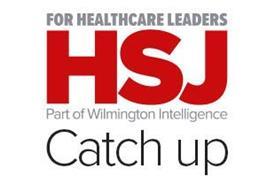
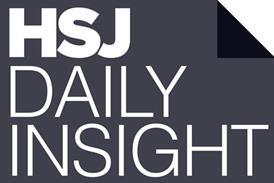
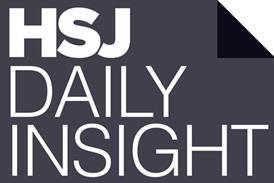
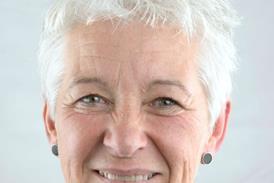
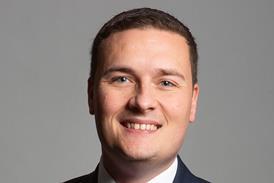
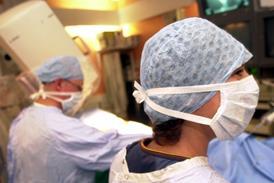
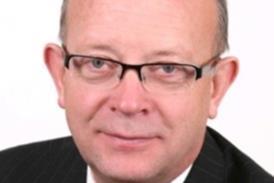

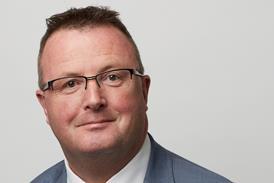

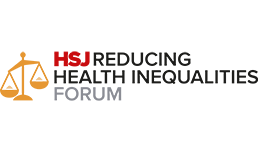

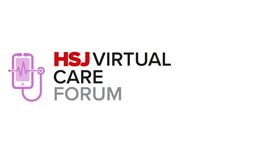











3 Readers' comments